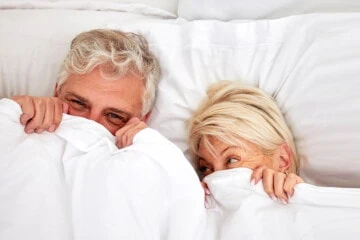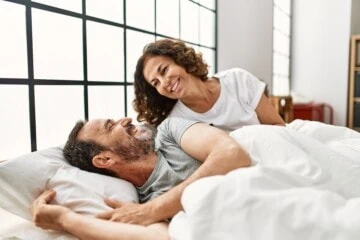
Exposure To Morning Sunlight Tends To Sleep Better.
These days most people are familiar with the term “sleep hygiene” and are aware of some of the more commonly recommended tips and tricks to get a better night’s sleep. Avoiding caffeine and other stimulants later on in the day, creating and maintaining a regular sleep schedule, avoiding large meals too close to bedtime, and reducing the amount of light our eyes take in during the evening. However, there is a lesser-known sleep hygiene tip that also involves light that few people know.
Recent studies have shown that people exposed to sunlight or bright indoor lights during the morning hours tend to sleep better at night. In addition to benefiting just their sleep, the study participants also reported feeling less depressed and stressed than those who do not get much morning light.
Our Circadian Rhythms And The Sleep-Wake Cycle.
Our circadian rhythms are 24-hour cycles that are part of the body’s internal clock. They run in the background to carry out essential functions and processes. The sleep-wake cycle is one of the most vital and well-known circadian rhythms in the human body.
Different systems of the body follow circadian rhythms, which are in sync with a master clock in the brain. This master clock is directly influenced by environmental cues, especially light. Being exposed to more light during the daytime and less light during the night helps to calibrate the circadian clock. The light provides the body with cues to when it is time to be awake and when it is time to sleep.
The workplace, the environment we spend our days in, will have a huge impact on the quality of sleep we get that night. Reducing the level and brightness of indoor light is a great way to cut electricity costs. Although, it may have a detrimental effect on the quality of sleep we are getting.
How To Get More Sunlight In Your Diet.
Research shows that people exposed to bright lights (especially natural daylight) between 8 am and noon fell asleep faster and had fewer interruptions to their sleep than those exposed to low levels of light during this same time of the day. So, how do you ensure that you’re exposed to enough light in the morning to benefit your sleep at night? The easiest way is to get outside as early as possible in the morning. Go for a quick walk around the block before starting your workday. If you drink coffee, enjoy your morning cup of Joe outside in the mornings.
Wintertime presents a new challenge for those living here in the great white north with getting enough Sunlight first thing in the morning. Many of us are already at work by the time the sun rises. The opportunity to be exposed to natural light during the first few hours of the day diminishes. In these situations, a sunrise lamp or a blue light therapy device (Philips GoLite Blu) can be used as a substitute for natural daylight.
And if you’re looking for more information on how to get a great quality sleep, check out our website for additional information on sleep hygiene and how to start getting the best quality sleeps of your life.




